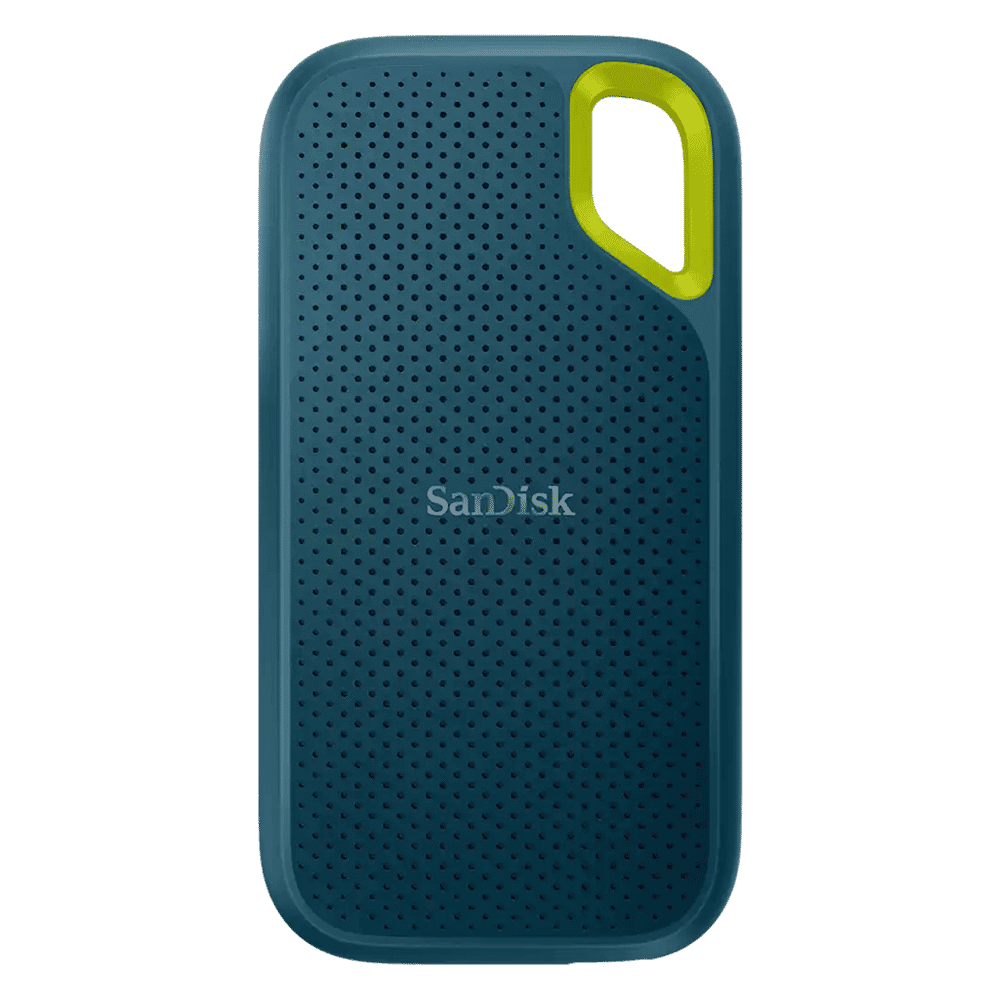%20(Presentation)%20(1600%20x%20600%20px)(211)-0751ef30-a2cb-421a-b6bc-40c76f1bd73a.webp&w=3840&q=75)
Consumer Electronics
•03 min read

Buy SanDisk Extreme 1 TB USB Type-C (3.2) Portable Solid State Drive (Drop Protection, Monterey) online at best prices from Croma. Check product details, reviews & more. Shop now!
Are you torn between choosing a Solid State Hybrid Drive (SSHD) and a Solid State Drive (SSD)? This blog post delves into the nuances of these two popular storage solutions that have transformed modern computing. By clarifying the differences in performance, lifespan, and value for various needs, you can make an informed decision that suits your lifestyle—whether you're a tech enthusiast, a family seeking reliable performance, or a young professional investing in productivity-boosting gadgets.
A Solid State Hybrid Drive (SSHD) merges traditional hard disk drive (HDD) technology with SSD-like NAND flash memory. This combination allows frequently accessed data to be retrieved quicker, making it a balanced solution for everyday computing. Its affordability and larger storage capacity make it a popular choice amongst those who require extensive space without compromising on essential speed.
Solid State Drives (SSDs) take an entirely different approach by relying solely on flash memory to store data. With no moving parts, SSDs offer superior read/write speeds, enhanced durability, and greater energy efficiency. This reliability and rapid performance have risen SSDs to become the go-to choice for those whose work or leisure requires swift data access and consistent performance.
When comparing SSDs and SSHDs, the differences in speed and responsiveness stand out. SSDs excel in rapid boot times, quick file transfers, and swift software launches, making everyday tasks almost instantaneous. On the other hand, SSHDs provide a middle ground by utilising a blend of HDD capacity and flash memory, which allows for improved performance over traditional HDDs, yet they do not match the ideal speed of SSDs.
For gamers and users of high-performance applications, every second counts. SSDs are known to significantly reduce load times, ensuring a smoother gaming experience and more reliable performance under heavy usage. While SSHDs may still serve casual gamers well—especially those mindful of budget constraints—the enhanced speed of SSDs sets a new standard for performance-intensive tasks.
Expert Tip: Speed Isn't Everything!
While SSDs dominate in speed, SSHDs can offer a balanced solution for users who need both performance and larger storage capacity at a lower cost.

Buy SanDisk Extreme 500GB USB Type-C (3.2) Portable Solid State Drive (IP65 Water and Dust Resistance, Black) online at best prices from Croma. Check product details, reviews & more. Shop now!
SSDs are renowned for their durability due to the absence of moving parts. This design minimises issues like mechanical failure, ensuring a longer lifespan based on the number of write cycles. Although concerns around flash memory wear exist, most modern SSDs are engineered with advanced technologies to mitigate these risks effectively.
SSHDs integrate a mechanical component from traditional HDDs, which inherently introduces some wear and tear over time. This blend means that while you enjoy the best features of both storage types, there is a component that potentially affects long-term reliability. Such drives may, in certain cases, fail earlier than pure SSDs, making them a consideration for users who prioritise longevity.
For those with significant storage needs on a budget, SSHDs offer an attractive proposition. They provide larger storage capacities at a lower cost, delivering balanced performance suited to moderate computing requirements. This makes them particularly appealing to users who require ample space for media or office work without incurring the premium cost associated with SSDs.
SSDs stand out for individuals seeking exceptional speed and energy efficiency. Their design delivers reliable performance that is ideally suited for gaming, video editing, and other high-powered tasks. When reliability and rapid data access are paramount, SSDs are a compelling choice over hybrid drives.
While SSHDs offer great value, their performance is generally slower than true SSDs and includes mechanical components that are prone to wear over time. Conversely, SSDs tend to be more expensive per gigabyte, and for those looking for expansive storage capacity on a tight budget, this can be a crucial factor in decision-making.

Buy SEAGATE One Touch 1TB USB Type-C (3.0) Portable Solid State Drive (Rescue Data Recovery Services, Black) online at best prices from Croma. Check product details, reviews & more. Shop now!
Your storage choice should reflect your specific needs. Consider whether you prioritise speed or storage capacity, assess your budget constraints, and evaluate how you intend to use your device—be it for high-performance gaming, professional workloads, or casual computing. The decision often hinges on these critical factors.
If your lifestyle includes intensive gaming or multimedia editing, an SSD will most likely elevate your experience through substantially reduced load times and heightened system responsiveness. Alternatively, if your usage mainly involves general office tasks or media storage, the cost-effective and spacious nature of an SSHD may well be the ideal solution.
SSD is better for speed and performance, whereas hybrid drives (SSHDs) offer larger storage capacities at a lower cost.
SSD is ideal for high-performance tasks such as gaming and video editing, while SSHD is more suited for budget-conscious users needing ample storage space.
An SSD hybrid, or SSHD, is a storage device that combines a traditional hard disk drive (HDD) with a small amount of SSD-like flash memory to enhance speed for frequently accessed data.
A hybrid storage laptop can be an excellent choice for users seeking a balance between cost and performance, particularly for casual computing or media storage.
In summary, SSDs excel with exceptional speed, energy efficiency, and reliability, making them perfect for tasks that demand high performance. On the other hand, SSHDs present a cost-effective solution with extensive storage capacity, albeit with slightly slower speeds and potential durability concerns. Reflect on your unique requirements—whether performance, storage, or budget is the priority—to decide which drive aligns best with your needs. Enjoy the assurance of shopping smartly, earning NeuCoins rewards, and experiencing seamless, expert support on Tata Neu.